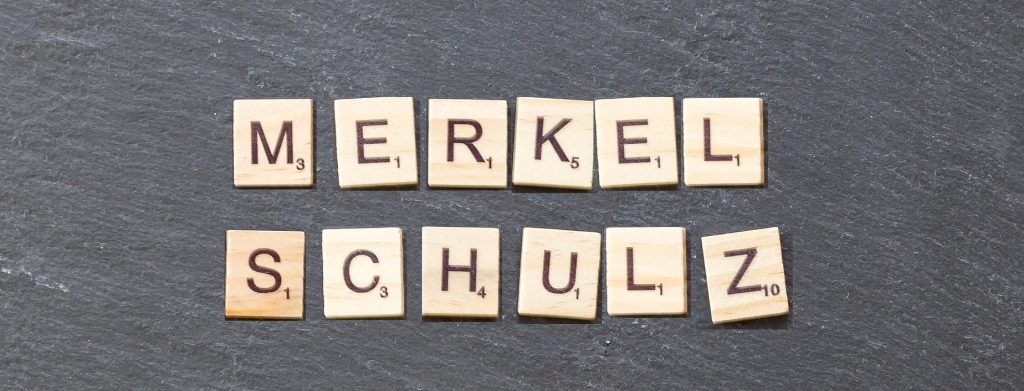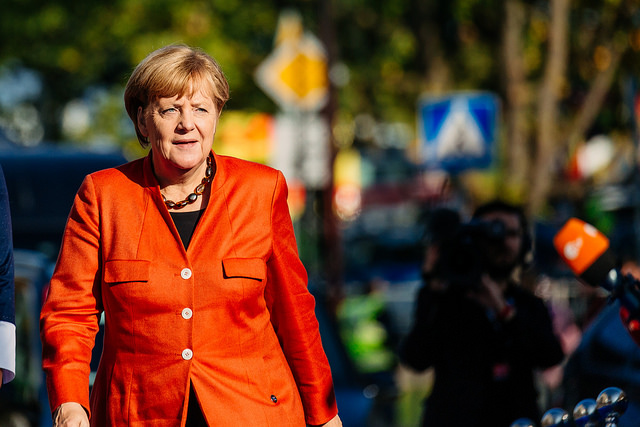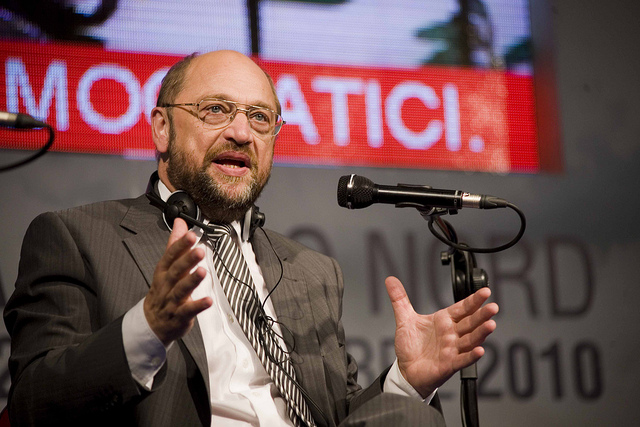
The two largest political parties in Germany have agreed a coalition deal, ending more than four months of uncertainty.
Angela Merkel’s Christian Democratic Unionists (CDU) won the election in September 2017, but were reliant on other parties to form a coalition government. Initial talks with the left-wing Green Party and centre-right Free Democrats fell through, with a failure to agree on climate change and migration policies.

German coalition negotiations then began with the Social Democratic Party (SPD) and its leader, Martin Schulz. The SPD had governed as part of a coalition in the previous government, and had looked to distance themselves from the CDU in the election.
With Merkel only agreeing to one TV debate, however, Schulz was perceived as being unable to communicate a distinct party platform. The SPD ultimately lost 40 seats, and was hit by a massive upturn in the vote of Alternative for Germany (AfD), a far-right populist party.
The new German coalition deal has granted control of the finance, foreign and labour ministries to the SPD, a major coup for the left-wing party. While there is little reason to change Germany’s overall economic approach – growth is currently at a steady 0.8% – the SPD is likely to push for small tweaks.
Chief among their manifestos pledges was a change to the top rate of income tax, with the bracket rising from €54,000 to €76,200, and the rate rising from 43 to 45%. While this isn’t necessarily good news for business owners, the additional money in the pockets of lower and middle class families could provide crucial stimulus to Germany’s consumer economy.
Elsewhere, however, little is expected to change. As the former head of the European Parliament, Schulz is also a firm believer in the European project and Germany’s place in it. His enhanced position in the coalition government should be a stabilising influence across Europe, and may even have positive consequences for Brexit negotiations.
The move does mean that AfD will now become Germany’s official opposition party, giving them a more substantial platform. However, the government plans to form a new ministry catering to rural affairs, which is designed to address and placate the concerns of many AfD voters.
The coalition plans will now be put to votes by both parties. While the CDU’s is expected to go smoothly, there are some lingering questions over the SPD’s youth movement, who are broadly against another coalition. It is likely however that they would vote for a coalition rather than fresh elections, which look set to only benefit Alternative for Germany.
We’ll endeavour to keep you up-to-date with the latest business news from Germany and across Europe. For more information on starting a business in Germany or any other formation requirements, don’t hesitate to contact us.



